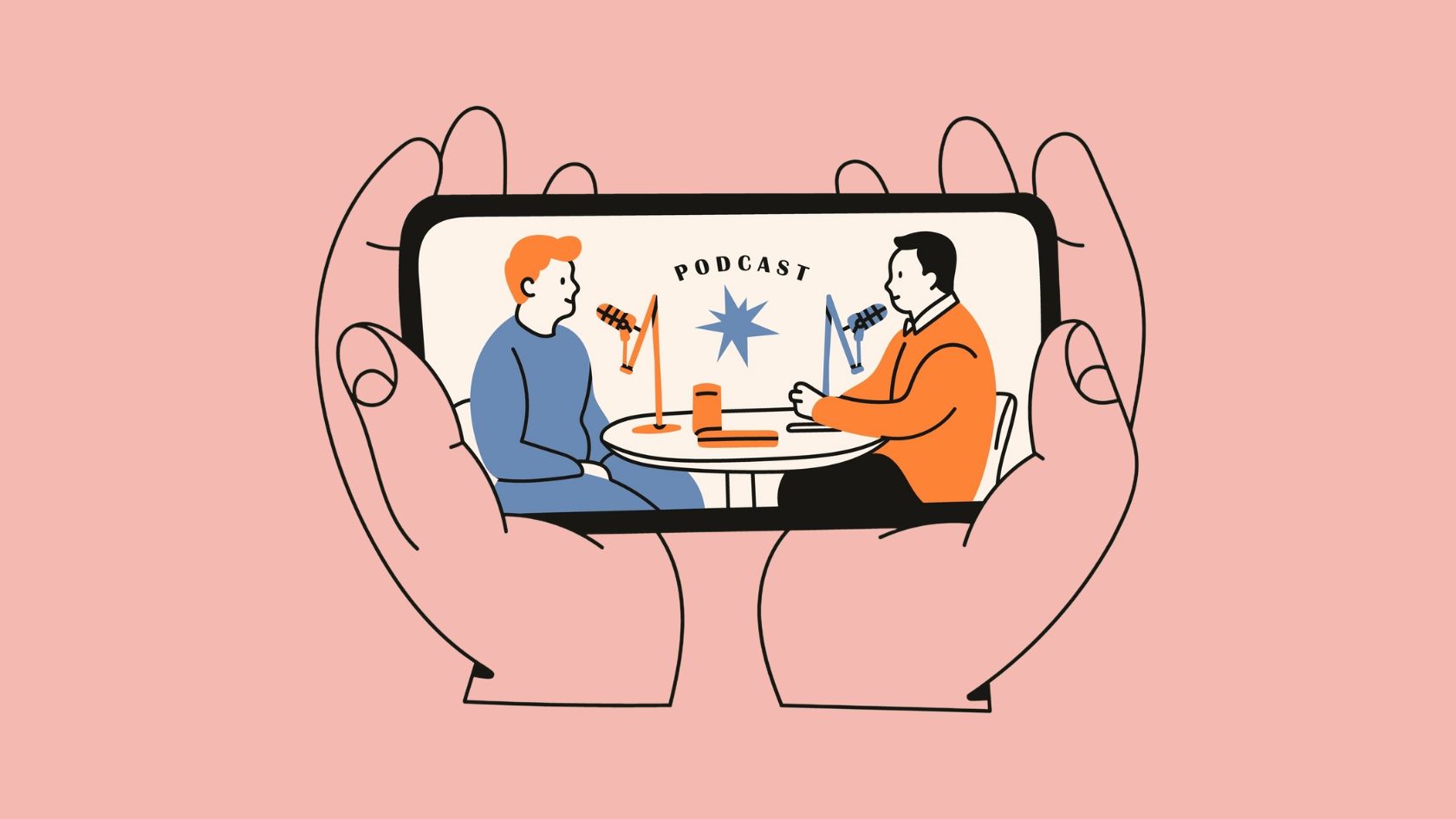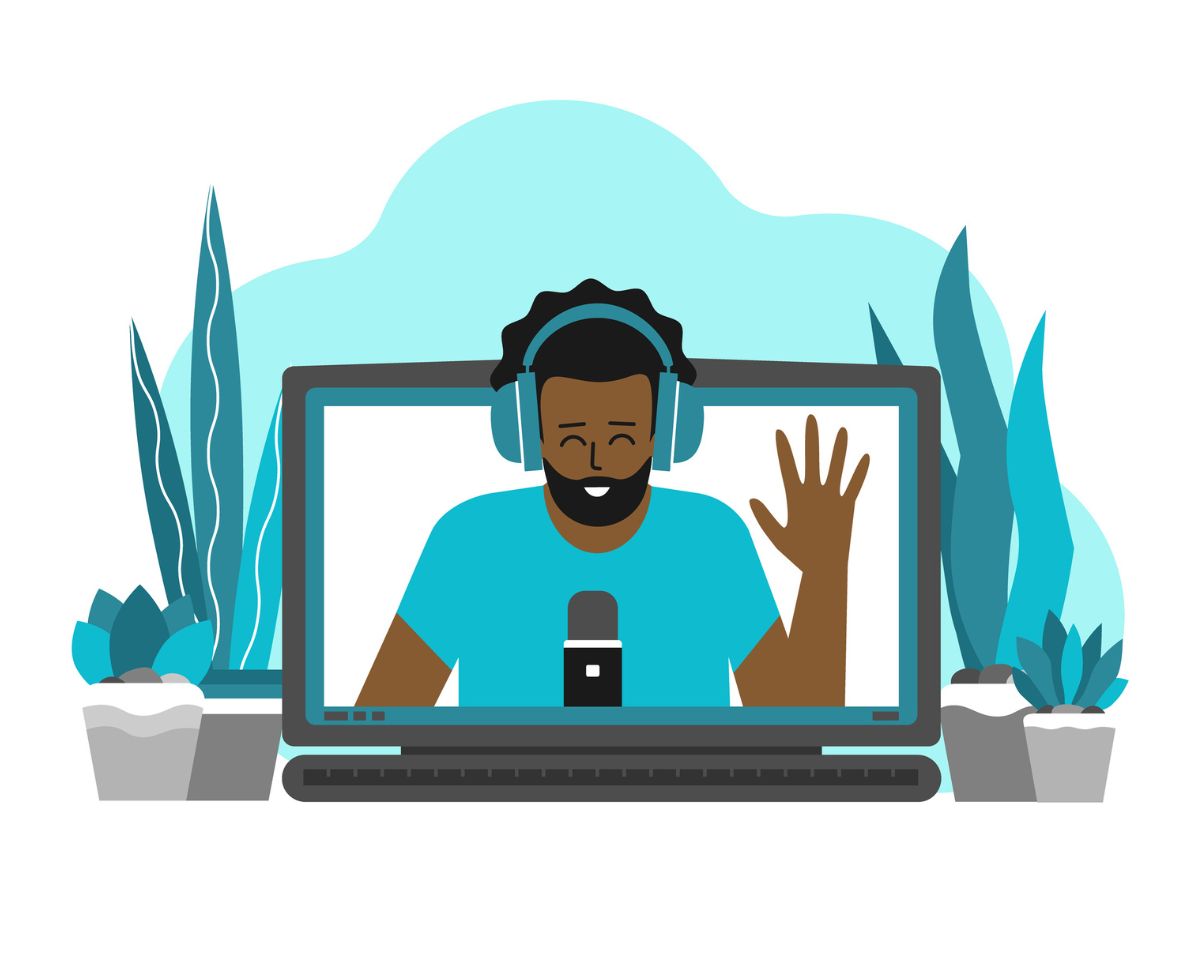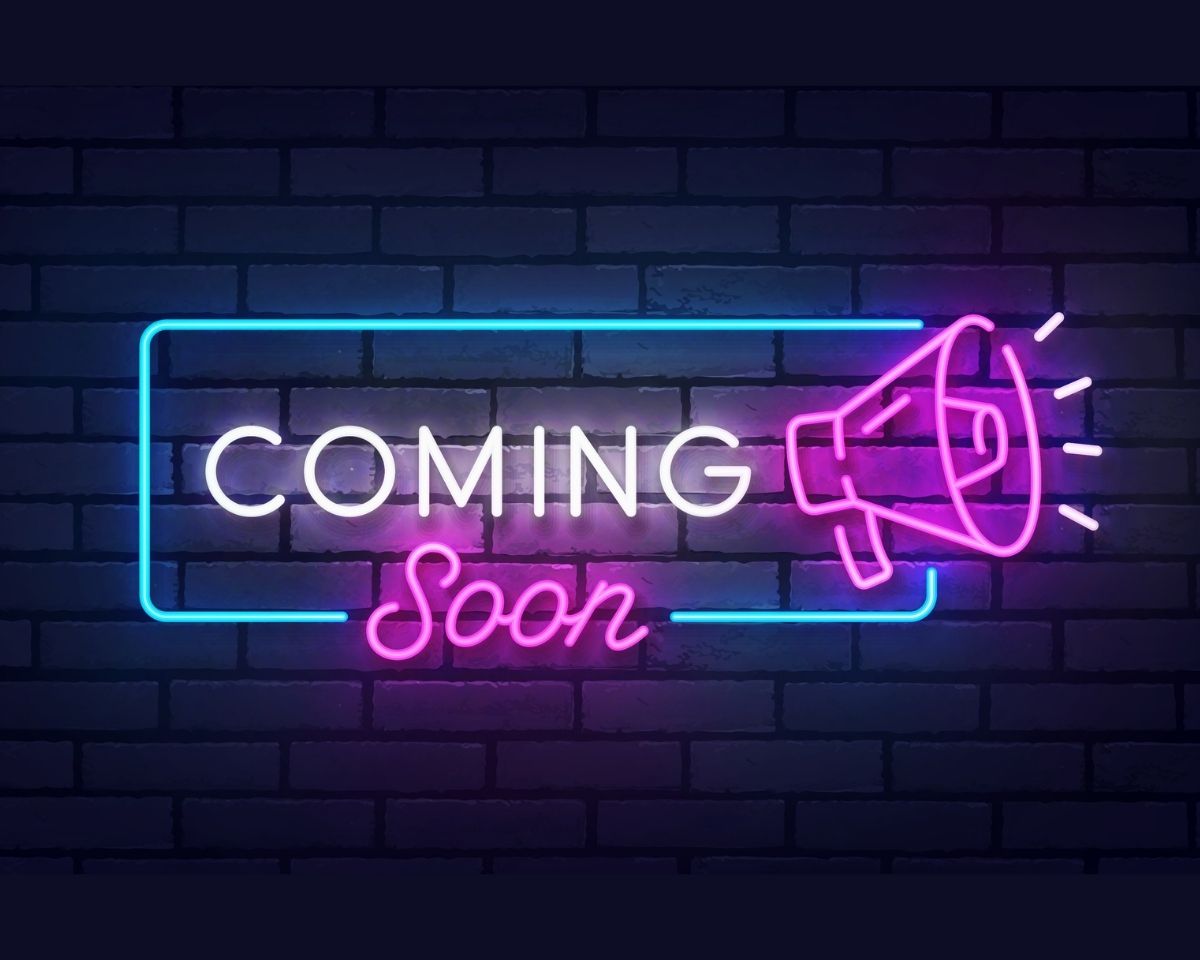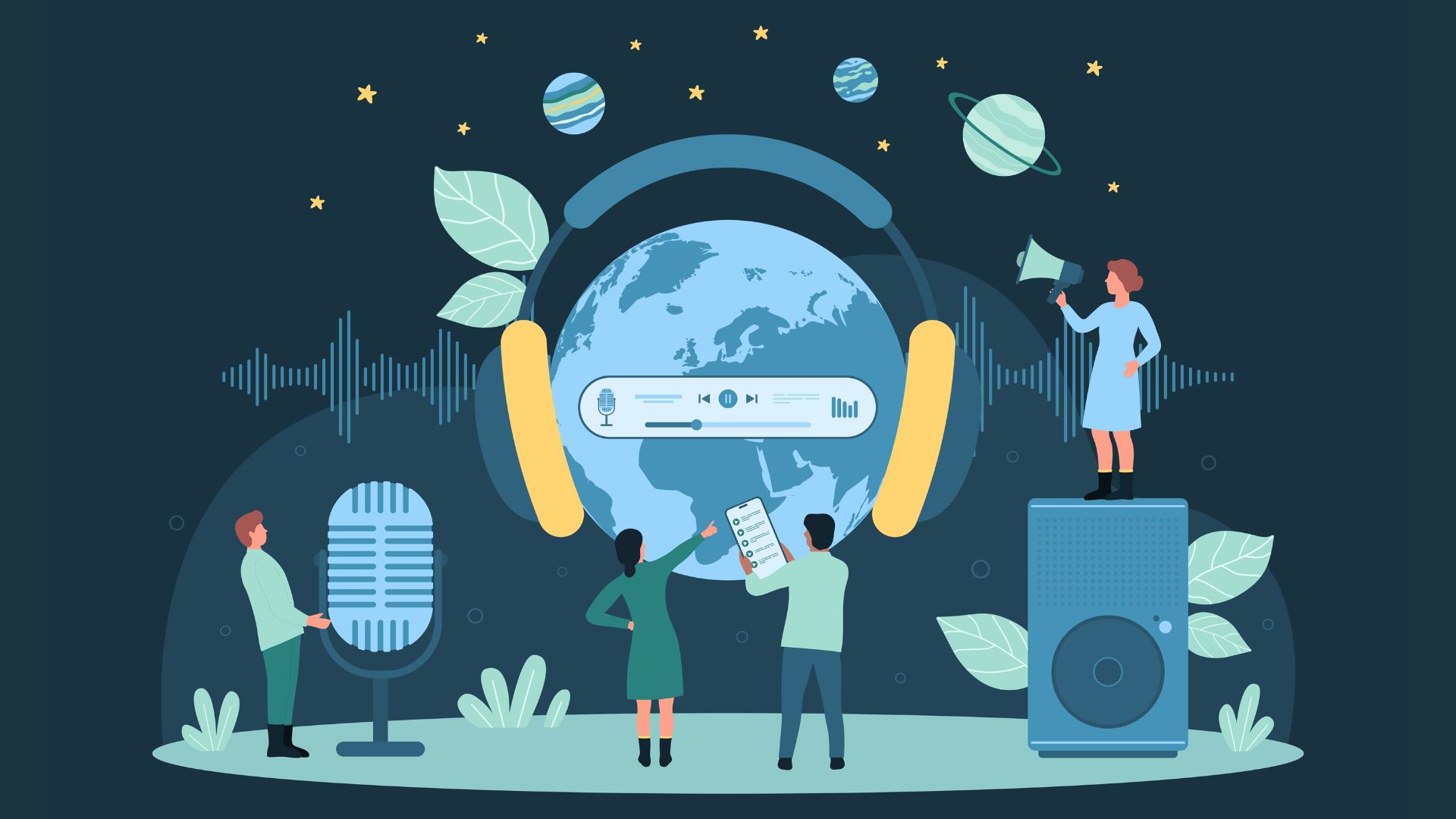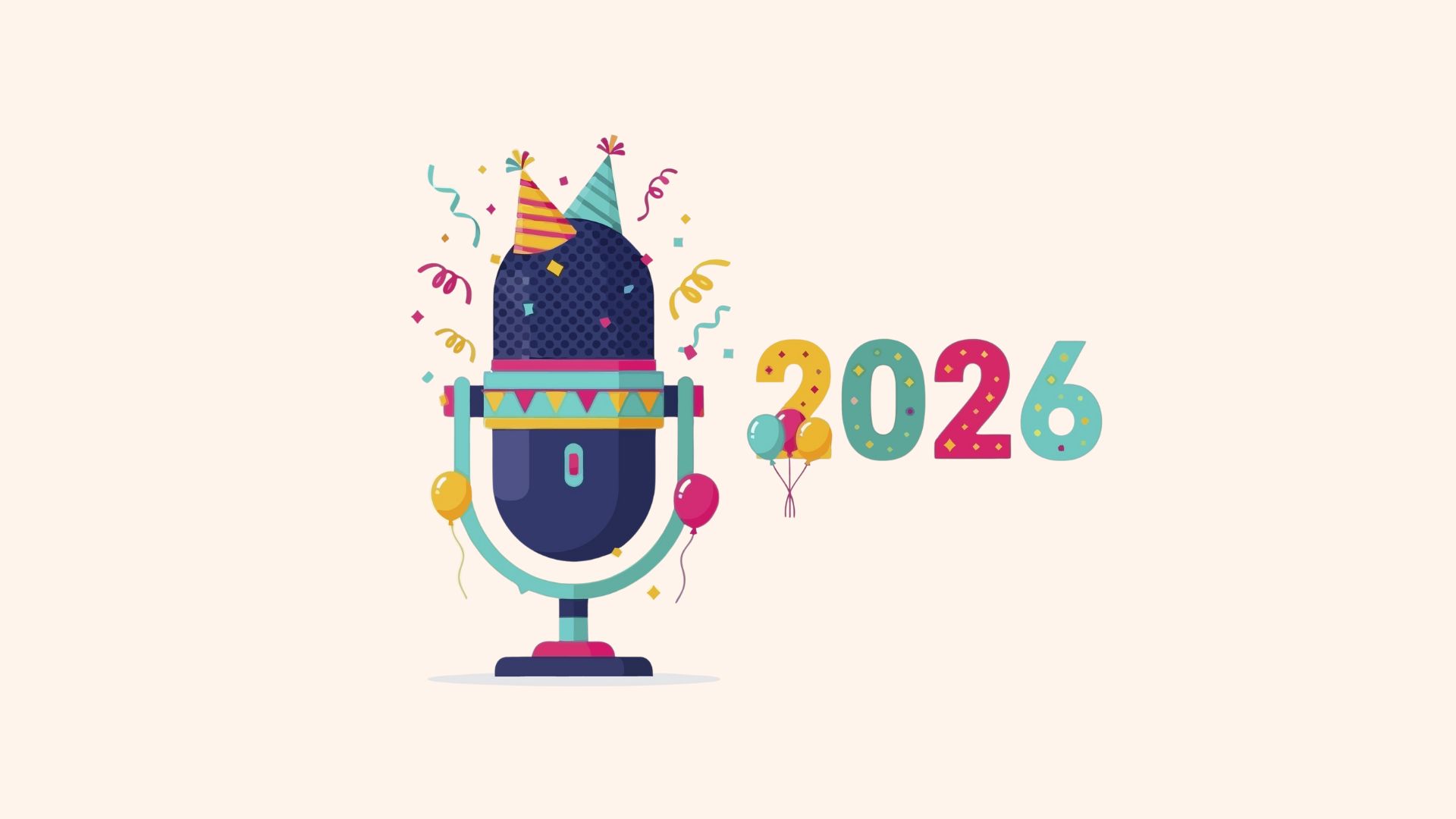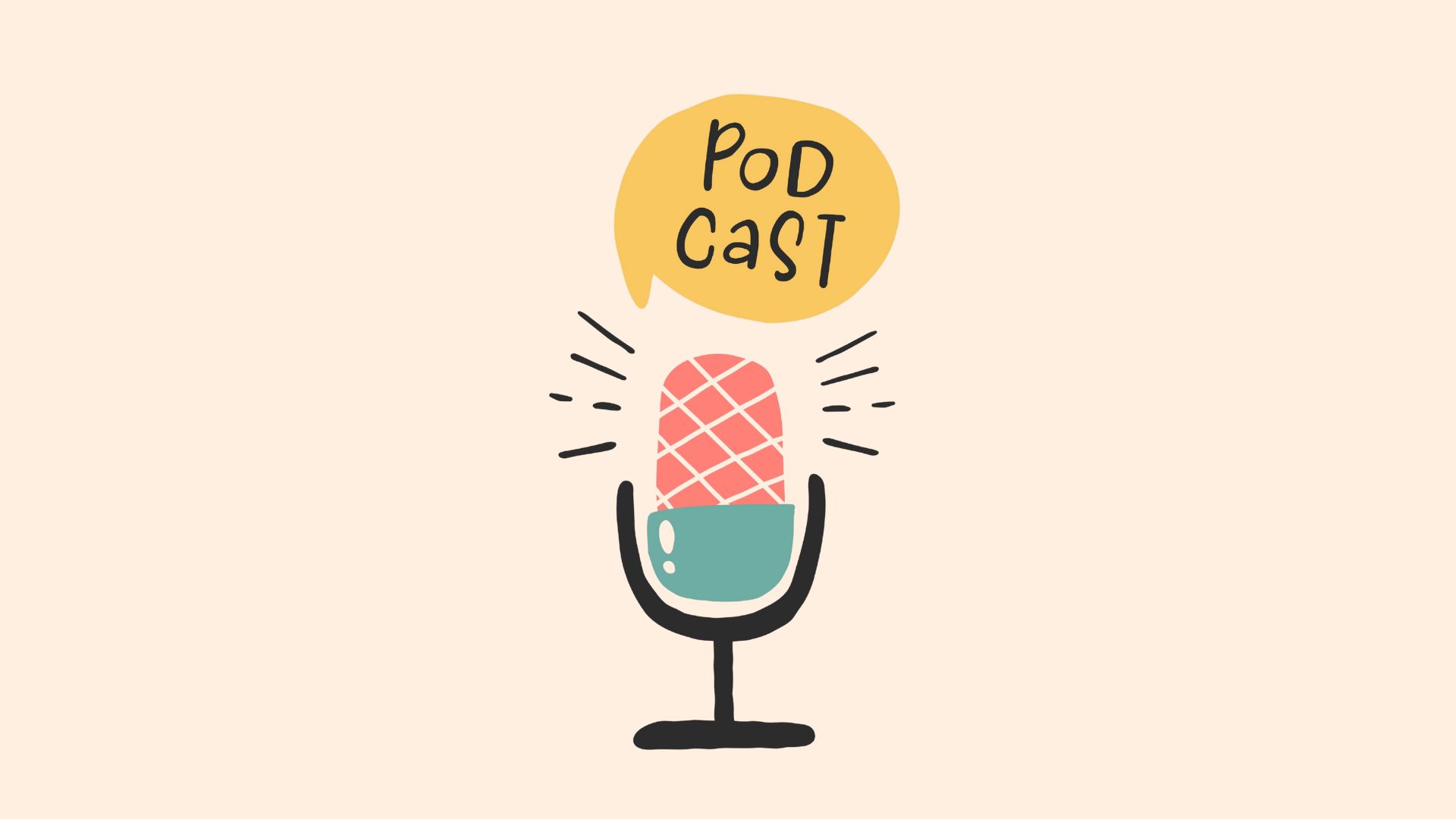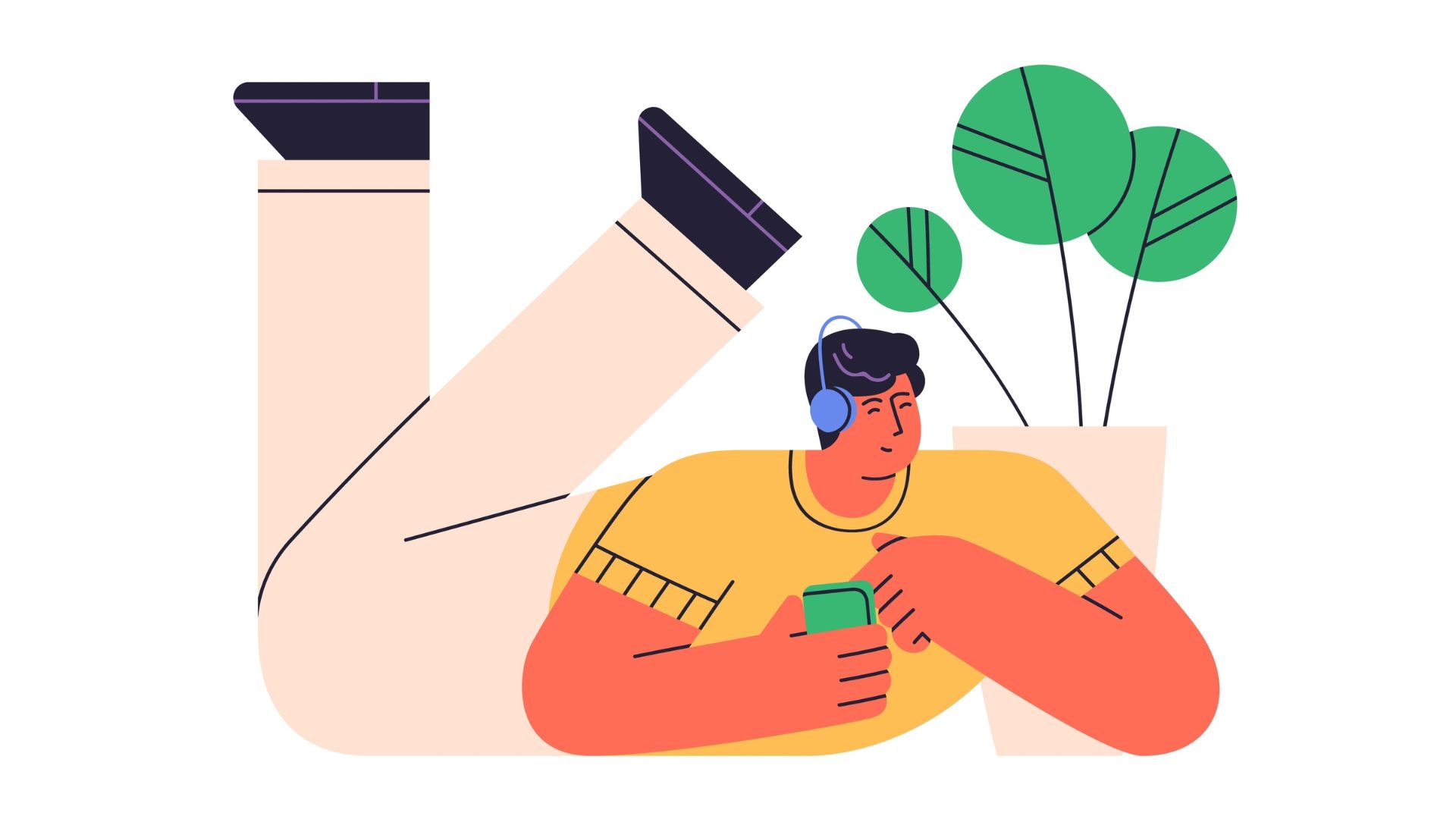Can your podcast survive if it’s audio only?
Video has become a massive focus in podcasting and there’s incredible opportunity in the space.
But the hype has scared people into thinking they can’t have a successful podcast without building a full video studio and finding time to edit video episodes when they’re still not sure how they’re going to get the audio ones out.
There’s no doubt, in the current landscape, you have to be thinking about how you can incorporate video, in some way, into your podcast.
Especially because it presents a great opportunity for discoverability (and monetisation IF your podcast gets big enough).
But do you need to upload full episodes to YouTube from the day you launch to have a successful show long term?
No.
Success in video isn’t as simple as “I’m just going to shove my podcast up onto YouTube.”
I’ve seen plenty of incredibly successful podcasts do just that and wonder if it’s worth the time and effort because they’re not seeing results.
But video podcasting isn’t a one size fits all solution.
For some shows they’ll never get the kind of views that will justify doubling their workflow time and paying for a video studio.
For others it’ll give them a decent amount of additional audience and be worth the extra effort.
And for a few it’ll be so successful they’ll be laughing all the way to the bank.
The key is that you have to have a strategy that’s platform specific i.e. what is your YouTube strategy AND your audio strategy.
And the strategy needs to be based on YOUR show.
Not on what someone else is doing (even if they say “this is the only way to do it”).
Want help starting your podcast? Download my FREE ‘How To Start A Podcast’ guide.
What are the benefits of adding video to your podcast?
It improves discoverability
Getting your podcast found by new listeners is still one of the biggest struggles in podcasting.
And since YouTube is the second largest search engine behind Google and they’re in the business of pushing videos into the feeds of their users, it’s a great place to get your show discovered.
Does that increased visibility always guarantee more listens on your audio product? Nope.
But at least you’re building awareness about your show.
It gives you more engaging and interesting promotional content to share
If you’re only going to use video for one thing, I’d recommend starting with your promotional content.
Watching a compelling video is always going to be way more interesting than looking at a static image, a piece of text or an audiogram.
If you want to give people a reason to check out your podcast, you’re going to increase the chances of that happening with content that’s more engaging.
And done well, video can be really engaging.
It can increase the connection with your audience
Audio is amazing, but if people can see you it deepens their connection with you even further.
Putting a face to a voice they love will help them visualise you when they’re listening to your content and that can build powerful connections.
It can open up additional monetisation options
If you do manage to build up a significant audience on your Youtube channel or via video in Spotify this can open up another revenue stream.
A note that the amount of money you can potentially make on these platforms will depend on your audience and watch times.
It can give you incremental audience growth
Some listeners who want to watch your podcast on YouTube might never go near a podcast app and the fact your content is there, ready for them to consume means you’ve got a listener or viewer you wouldn’t have had otherwise.
If you want your show to be consumed by as many people as possible then it’s a good idea to be in as many places as possible.
And there are plenty of people on YouTube.
Even if all you can manage is uploading some promo clips to Shorts, you’re still getting your content in front of people who might not have seen it otherwise, and that’s a win.
Disadvantages of using video in your podcast
It adds more production complexity and time to the podcast process
Adding video to your podcast adds complexity to your workflow.
You have to think about lighting, your background, clothing, make-up (one of the most annoying things for female podcasters, like me, who cannot be bothered putting a full face on to record a podcast).
Video also adds a lot of time in the set up, pack down and also in editing.
When you’re editing an audio file it’s easy to make it sound like it was recorded perfectly in one go.
But when you add video into the mix, the visuals give you away because if you take something out the vision cuts from one moment to another.
If you’ve got multiple cameras you can cover this up by using cutaways but again this adds another layer of time and complexity to your show that most people can’t justify.
If you’re starting out this might be way too much to put on your plate and that’s ok.
The single biggest factor in podcasting success is consistency.
So if focusing on audio means your show actually gets out every week, then start there.
You can always add video later.
Audio is easier to consume than video
Podcasting grew into the industry it is today because of it’s ability to seamlessly fit into people’s lives.
It was hailed as the antidote to screen fatigue, a time out from scrolling on devices.
And while video traditionally requires you to sit down and watch it, a lot of people are consuming video podcast content on YouTube without even looking at the screen.
Some might argue it’s not worth putting all that time and effort into making something look good if someone is going to listen to it in their pocket but it’s about making sure your content is where people are, no matter how they want to consume it.
Audio is a powerful way to build connection and if you’re combining an audio show with video promotion, you can still build an really strong podcast with a highly engaged audience.
How do you decide whether to add video to your podcast?
The decision has to be based on what’s right for your show and not FOMO.
When deciding whether video, and particularly full length episodes, are right for you, think about…
- Your content and whether it would benefit from a video episodes
- Whether you have the time and resources available to add this into your process or whether it’ll make it so complex you’ll never get your episodes out or won’t commit to your podcast long term
- Whether your target audience wants video
All of these things need to be carefully considered when working out how much or how little video to introduce to your show.
So, can you have a successful podcast without video?
Yes.
There’s no doubt there are LOTS benefits to incorporating video into your podcast, especially for promotion.
But there are also great benefits to your show being audio-first too.
Podcasting has become the industry it is today because of the power of audio as a medium.
It’s incredibly convenient for your audience to listen to, it can be incorporated into their lives with absolutely no friction and from a creator perspective, it’s got much lower production barriers than video.
So, if you’re just getting started, focus on creating valuable, engaging content and delivering that consistently.
Then, when you’re nailing that and getting your episodes out, you can think about how to incorporate video in a way that’s right for your audience, your content and you.
🎙️ Want to start a podcast but feeling overwhelmed?
Grab my free “How To Start A Podcast” guide or get step-by-step support inside my online course, PodSchool.
Got a question about podcasting? Send it my way so I can answer it on the podcast!
[spp-transcript]
